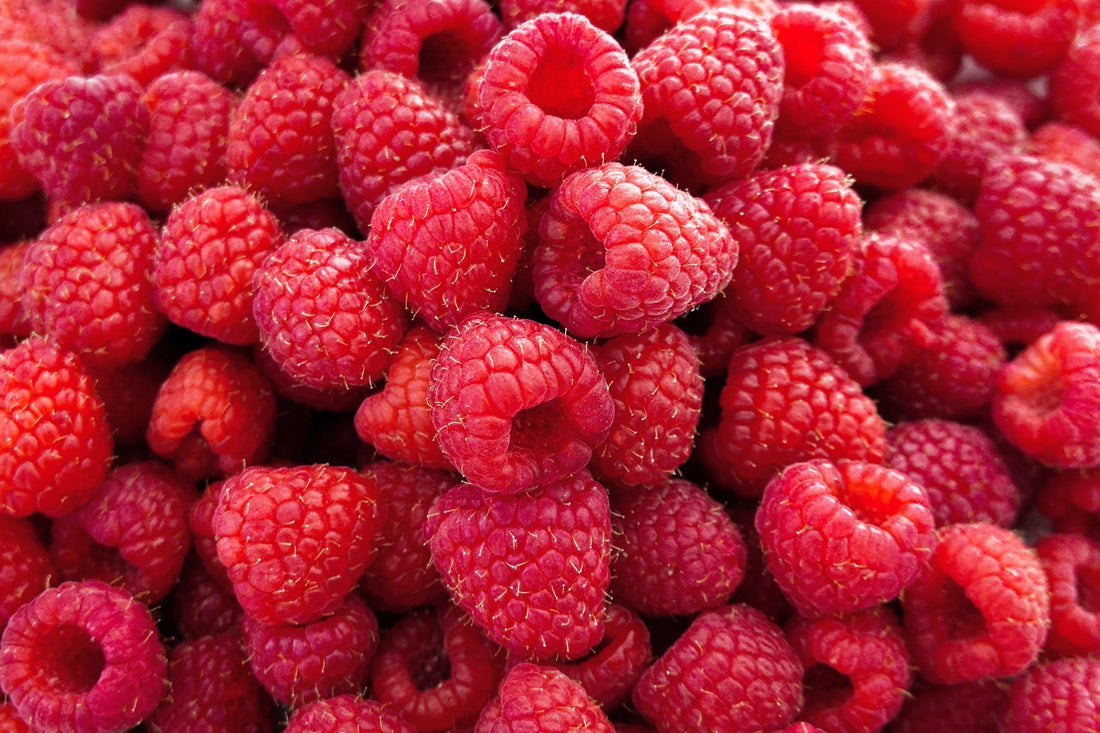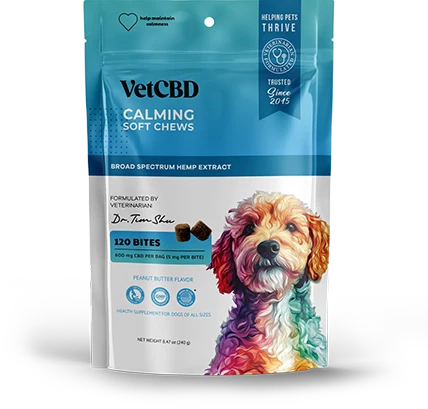
Can Dogs Eat Raspberries?
Share
Most dogs are interested in foods that smell meaty or cheesy, which is why it’s no surprise that your dog might patiently stalk you if you’re holding a burger or a slice of pizza.
If your dog seems to be taking an interest in your berries and yogurt, you’re probably a little surprised. Can dogs even eat raspberries? Do they provide any nutritional benefits for your dog?
Not all berries are created equal. Here’s what you need to know about berries and your dogs before you offer a few up as a sweet and fruity treat.
What Are the Health Benefits of Raspberries?
While there is no such thing as a true “superfood” for dogs, raspberries are spectacular. They’re a healthy addition to any meal, and they serve as the ideal snack for diets focused on overall wellness.Raspberries Can Promote Cell Health
Raspberries are packed with antioxidants. Antioxidants are compounds that help to protect healthy cells. When free radicals from environmental pollution or metabolic processes within the body come into contact with the cells of the body, they seek to steal an electron. They’ll take this electron from a healthy cell, damaging and ultimately destroying that cell. Antioxidants sacrifice themselves. They’ll give up an electron instead, sparing healthy cells the damage. That’s what makes antioxidants beneficial for the health of all living things, including your dog.Raspberries Can Aid in Digestion
Raspberries contain a significant amount of dietary fiber. Human and animal bodies need dietary fiber for digestive health and regularity. In polite terms, fiber helps us use the bathroom regularly.Raspberries Are Rich in Vitamins
The benefits of vitamins in raspberries are similar for both you and your pup. Raspberries contain B vitamins, which boost metabolic health and help the body to produce blood cells. They also contain vitamin K, a vitamin the body uses to regulate levels of calcium throughout the body. Vitamin K significantly contributes to bone health and heart health.Raspberries Contain Essential Trace Minerals
Raspberries contain small amounts of trace minerals like copper, manganese, and selenium. Trace minerals play small but important roles in the formation of cells, maintaining the health of the nervous and skeletal system, and muscle communication.Raspberries Are Lower in Sugar
All fruit and berries contain naturally occurring sugar. If you’re trying to watch your sugar intake or looking to avoid providing your dog with sugary treats, raspberries are an exception to the rule. Their small size makes it easier to enjoy a sweet indulgence without bulking up your diet with sugar — that said, it’s worth it to ask your vet for guidance on feeding raspberries as a snack if your dog has metabolic issues like diabetes.Can Dogs Eat Raspberries?
Dogs can eat raspberries, but there are a few important caveats. Giving your dog four or five raspberries is unlikely to cause your dog harm, but you’ll need to carefully monitor your dog’s raspberry intake. While raspberries contain plenty of good stuff that will keep your pup healthy, they contain very small amounts of compounds that can be toxic to your dog.The Toxic Compounds in Raspberries
Xylitol is a plant-derived sugar alcohol used as a calorie-free sweetener in many sugar-free foods, low calorie foods, gums, candies, and dental hygiene products. Xylitol is perfectly fine for humans. It works to promote oral health by creating a film over the teeth that makes it harder for bacteria to form plaque. Xylitol has absolutely no benefits to your dog. In fact, ingestion of xylitol can be fatal. That’s why you should never give your dog foods that have been artificially sweetened, and also why you can’t use human dental care products to manage your dog’s oral hygiene. Raspberries naturally contain very small amounts of xylitol. The amount of xylitol in a raspberry is so negligible that it’s unlikely to harm your dog. It would take over 1,000 raspberries to induce xylitol toxicity in a large dog, and chances are slim to none that you would even have that many raspberries in your home. You should never leave large amounts of raspberries unattended in an area of your home where your dog could independently access them. If you’re throwing out raspberries that went bad before you could eat them, it’s best to put them in a trashcan in an area inside or outside of your home that your dog cannot easily access.What Berries Are Toxic to Dogs?
Dogs shouldn’t have cherries or cherry-flavored foods. If you ordinarily keep cherries in your home, make sure that every member of your family (especially the children) understand that they cannot share cherries with the dogs. Gooseberries are less common in most households, but they’re also toxic to dogs. If your family eats them or grows them, you need to be especially mindful to prevent your dog from accessing them. There are plenty of berries growing outside that your dog can’t eat, and it’s important to remove these berry plants from your property.- Baneberries
- Dogwood berries
- Holly berries
- Juniper berries
- Mistletoe berries
- Pokeberries
- Salmonberries


